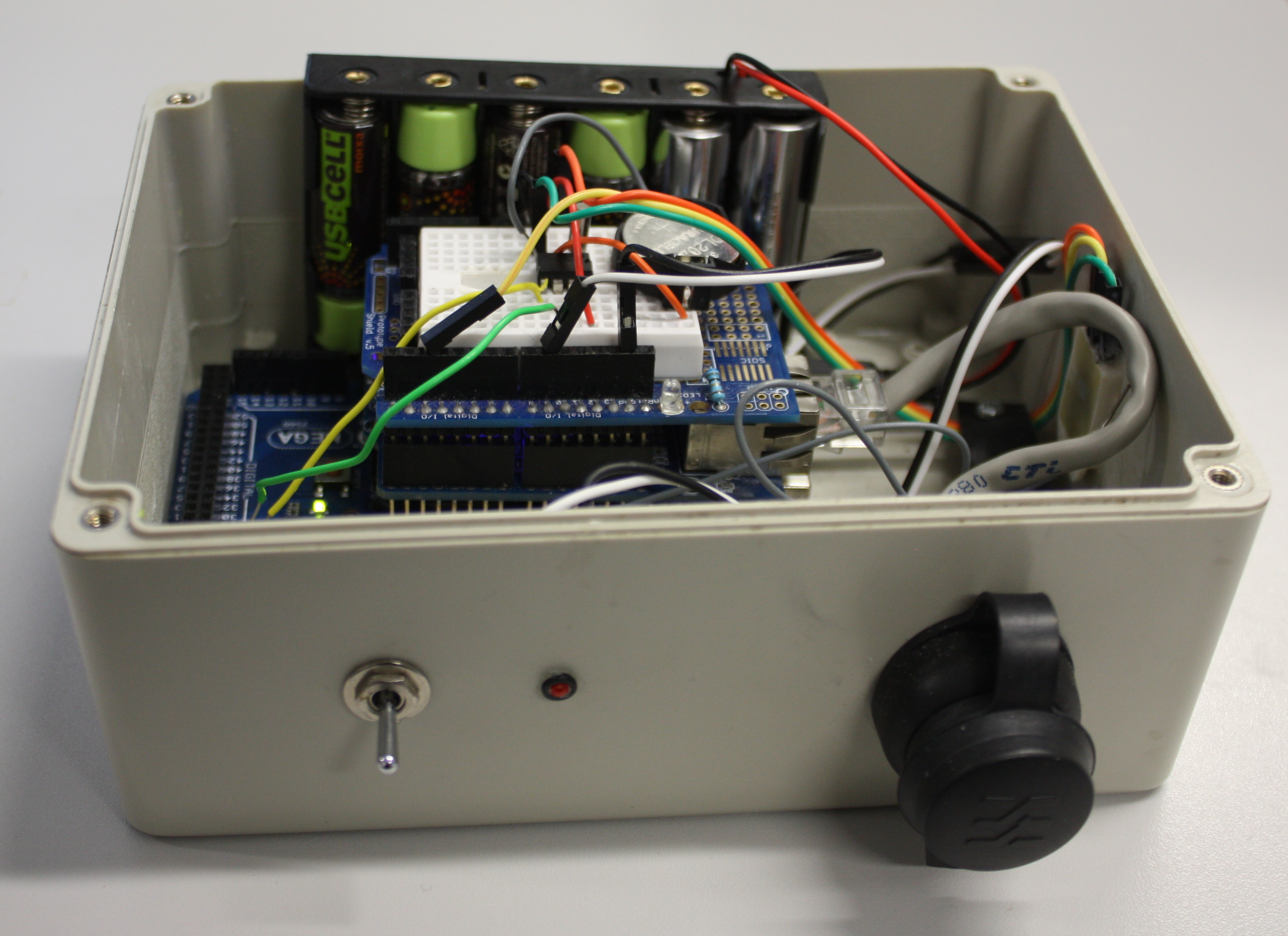Difference between revisions of "Template:Article of the week"
Shawndouglas (talk | contribs) (Updated article of the week text (corrected).) |
Shawndouglas (talk | contribs) (Updated article of the week text.) |
||
| Line 1: | Line 1: | ||
<div style="float: left; margin: 0.5em 0.9em 0.4em 0em;">[[File: | <div style="float: left; margin: 0.5em 0.9em 0.4em 0em;">[[File:Fig14 Baker BiodiversityDataJournal2014 2.JPG|240px]]</div> | ||
'''"[[Journal: | '''"[[Journal:Open source data logger for low-cost environmental monitoring|Open source data logger for low-cost environmental monitoring]]"''' | ||
The increasing transformation of biodiversity into a data-intensive science has seen numerous independent systems linked and aggregated into the current landscape of [[biodiversity informatics]]. This paper outlines how we can move forward with this program, incorporating real-time environmental monitoring into our methodology using low-power and low-cost computing platforms. | |||
Low power and cheap computational projects such as Arduino and Raspberry Pi have brought the use of small computers and micro-controllers to the masses, and their use in fields related to biodiversity science is increasing (e.g. Hirafuji shows the use of Arduino in agriculture. There is a large amount of potential in using automated tools for monitoring environments and identifying species based on these emerging hardware platforms, but to be truly useful we must integrate the data they generate with our existing systems. This paper describes the construction of an open-source environmental data logger based on the Arduino platform and its integration with the web content management system [[Drupal]] which is used as the basis for Scratchpads among other biodiversity tools. ('''[[Journal:Open source data logger for low-cost environmental monitoring|Full article...]]''')<br /> | |||
<br /> | <br /> | ||
''Recently featured'': | ''Recently featured'': | ||
: ▪ [[Journal:Evaluating health information systems using ontologies|Evaluating health information systems using ontologies]] | |||
: ▪ [[Journal:From the desktop to the grid: Scalable bioinformatics via workflow conversion|From the desktop to the grid: Scalable bioinformatics via workflow conversion]] | : ▪ [[Journal:From the desktop to the grid: Scalable bioinformatics via workflow conversion|From the desktop to the grid: Scalable bioinformatics via workflow conversion]] | ||
: ▪ [[Journal:Terminology spectrum analysis of natural-language chemical documents: Term-like phrases retrieval routine|Terminology spectrum analysis of natural-language chemical documents: Term-like phrases retrieval routine]] | : ▪ [[Journal:Terminology spectrum analysis of natural-language chemical documents: Term-like phrases retrieval routine|Terminology spectrum analysis of natural-language chemical documents: Term-like phrases retrieval routine]] | ||
Revision as of 18:50, 29 August 2016
"Open source data logger for low-cost environmental monitoring"
The increasing transformation of biodiversity into a data-intensive science has seen numerous independent systems linked and aggregated into the current landscape of biodiversity informatics. This paper outlines how we can move forward with this program, incorporating real-time environmental monitoring into our methodology using low-power and low-cost computing platforms.
Low power and cheap computational projects such as Arduino and Raspberry Pi have brought the use of small computers and micro-controllers to the masses, and their use in fields related to biodiversity science is increasing (e.g. Hirafuji shows the use of Arduino in agriculture. There is a large amount of potential in using automated tools for monitoring environments and identifying species based on these emerging hardware platforms, but to be truly useful we must integrate the data they generate with our existing systems. This paper describes the construction of an open-source environmental data logger based on the Arduino platform and its integration with the web content management system Drupal which is used as the basis for Scratchpads among other biodiversity tools. (Full article...)
Recently featured:










